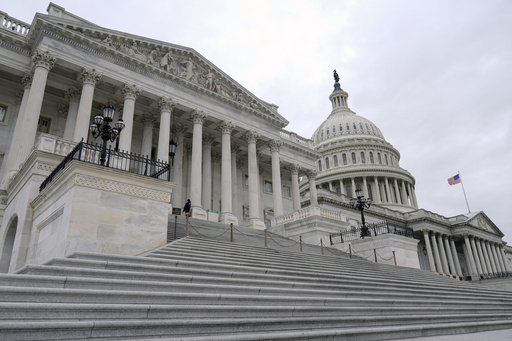
The U.S. House of Representatives approved legislation on Thursday granting the Treasury Department the authority to unilaterally revoke the tax-exempt status of nonprofits identified as supporting terrorism. This move has raised significant concerns among civil liberties advocates, who fear that a future administration, particularly under a second Trump presidency, could misuse this power against political adversaries.
The bill passed with a vote count of 219 to 184, receiving strong backing from Republican members. They accused Democrats of changing their position on what they referred to as a “common sense” proposal following Trump’s recent electoral win. On the House floor, Rep. Jason Smith, the Republican chair of the House Ways and Means Committee, emphasized that the issue of terrorism is independent of who occupies the presidency. He insisted that Congress has a responsibility to prevent taxpayer funds from supporting terrorism, calling the need for this legislation very straightforward.
However, the proposal has provoked alarm among various nonprofit organizations, who argue that it could be weaponized against groups—such as media outlets, academic institutions, and civic organizations—with whom a future president may disagree. Critics contend that the legislation lacks adequate due process protections for nonprofits.
Rep. Pramila Jayapal, chair of the Congressional Progressive Caucus, characterized the bill as an authoritarian initiative by Republicans, aimed at broadening executive powers to persecute political opponents and suppress dissent. Others argue that the legislation is redundant since it is already illegal in the U.S. to support designated terrorist entities. After passing in the House, the bill is now headed to the Senate, which is under Democratic control, where its future remains uncertain. In addition to targeting nonprofits, the bill would also alter tax filing deadlines for Americans who are held hostage or unlawfully detained overseas.
According to an analysis by the Congressional Research Service, the legislation would establish a new category of “terrorist supporting organizations.” This designation would apply to any organization identified by the Treasury Secretary as having materially supported a terrorist group within the preceding three years. Jenn Holcomb, vice president of government affairs at the Council on Foundations, expressed her concern over the overreach involved in the legislation. She pointed out that it permits the Secretary of Treasury to label any 501(c)(3) nonprofit as a terrorist organization based on their discretion and lacks sufficient transparency regarding the rationale for such a designation.
Nonprofits identified as “terror-supporting” would have a 90-day window to appeal the designation. Organizations like the American Civil Liberties Union have criticized the bill for failing to require the Treasury Secretary to disclose all evidence relied upon for the designation.
The text of the bill stipulates that the Treasury must provide “a description of such material support” to the extent that doing so aligns with national security and law enforcement interests. Joining voice with the Independent Sector, the National Council of Nonprofits, and the United Philanthropy Forum, the Council on Foundations stated that the legislation shifts the burden of proof onto nonprofits, and even if they eventually prevail, they would suffer irreversible harm to their operations and reputation.
Should this bill be enacted, it could affect a variety of nonprofit entities, including unions, membership organizations, and private foundations. The legislation first emerged in the wake of the Hamas attack on Israel on October 7, 2023, and a previous version passed in April with some bipartisan support.
The bill was also brought to a vote the previous week but failed to achieve the required two-thirds majority under the special rules in place. Before the latest vote, Democrat Rep. Rashida Tlaib, the sole Palestinian-American member of Congress, stated that she was voting against the bill for the third time. “It doesn’t matter who the president is,” she asserted, calling the legislation dangerous and unconstitutional for granting unchecked authority to target nonprofits as political foes and eliminate them without due process.
